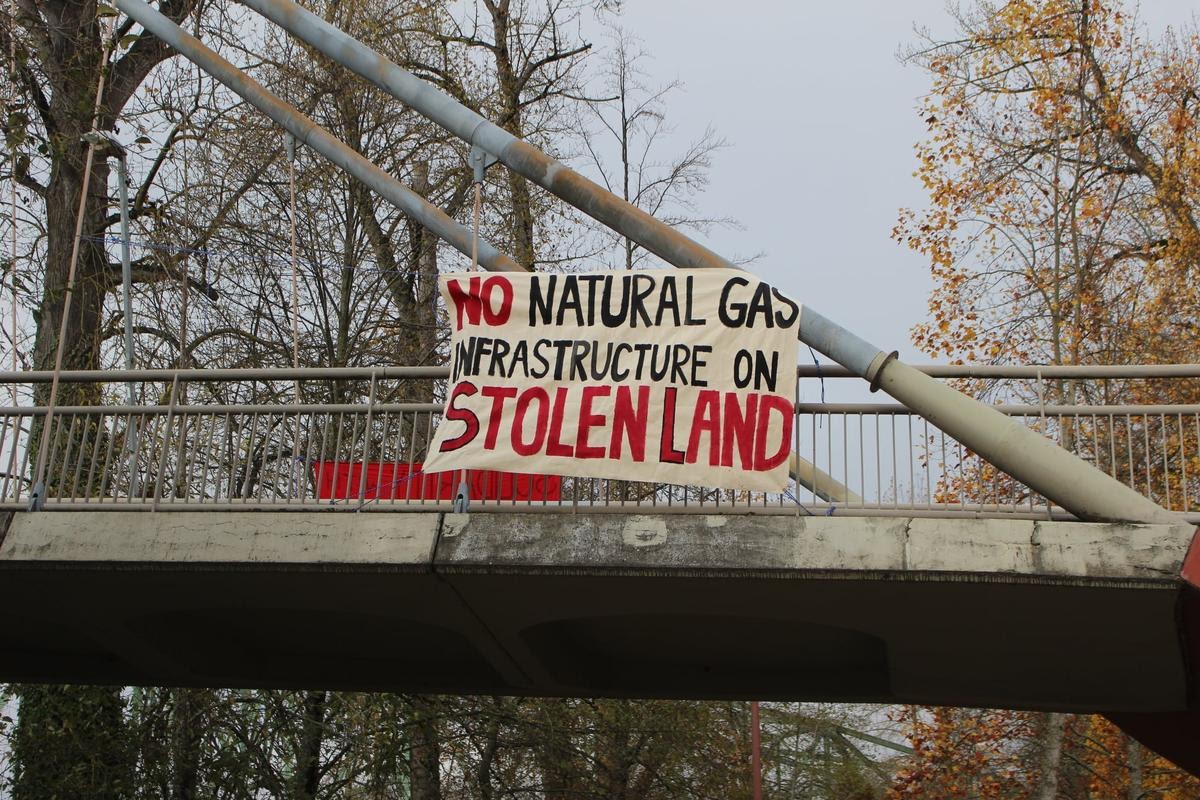By Nicholas Tippins
The city of Eugene has long touted itself as a climate leader, yet fossil fuel corporations like NW Natural have obstructed city climate action at every turn.
At 26 years old, I am a member of the generation that will inherit the most disastrous effects of climate change. While those who did not grow up in my era may see climate change as theoretical, people of my generation — and especially the low-income and historically marginalized people who are most vulnerable to its effects — see climate change is as real as life and death.
This knowledge is what drove me to act as a representative for Sunrise Eugene on the mayor’s ad hoc committee for the Climate Action Plan (CAP) 2.0. I went into the process believing the city could follow through on its ambitious goals and act on climate change. By the end, I wondered whether any meaningful change would take place at all. This is in part due to the political pressure exerted on our city’s government by NW Natural — pressure to keep the fracked gas flowing.
This pressure comes in the form of dishonest mailers sent to homes across the city and in cash incentives for residents to switch from the Eugene Water and Electrical Board’s electricity to dirty gas appliances. It also comes in the form of thinly veiled threats of negative PR campaigns and litigation in the face of any potential measures that the city might take to facilitate our community’s transition to clean, renewable energy.
But Eugene made a powerful promise with CAP 2.0: to reduce its carbon emissions and thereby give some small measure of hope that my children’s generation may survive on a habitable planet. Now is the time for them to act on that promise, and to show NW Natural that Eugene is governed based on the best interest of its residents, not the profit margins of corporations.
There is no future for any of us without a just transition away from fossil fuels, and the first step in this process in Eugene and throughout the region is to stop expanding the use of fracked gas.
Fracked gas infrastructure is not just a climate issue, it is also a social justice issue and a threat to public health. The era of COVID-19 puts these inequalities in stark focus. According to a new peer-reviewed study in the journal, Cardiovascular Research, fossil fuels are responsible for 40 percent of all global deaths from air pollution.
Research at Harvard University shows a strong relationship between exposure to air pollution and mortality from COVID-19. For every slight increase in the fossil fuel-derived pollutant PM2.5, there is an 8 percent increase in the death rate from COVID-19. Black, Latino and Indigenous people are especially vulnerable to COVID, and are more likely to live in communities with higher air pollution from PM2.5.
To put it simply: People of color in our community are the ones suffering the worst consequences of air pollution from fossil fuels, and in the midst of a deadly pandemic, these impacts are greatly compounded.
We are at a rare moment in our history when our leaders have the power to either ensure a livable future or doom us to extinction. For the first time in 20 years, the city has a chance to renegotiate its franchise agreement with NW Natural. With it, they could finally hold the corporation accountable and take meaningful action towards meeting their climate goals.
The city has the opportunity to transition our city to 100 percent renewable energy by 2030 and levy an additional fee on NW Natural to create a justice fund to support low income and historically marginalized communities from fracked gas to electric appliances.
This is an opportunity for the city to demonstrate that the Climate Action Plan is more than a list of aspirational promises. It is a clear moral choice of people over corporate profits. And it is a chance for our elected representatives to give the people the bold climate action that they voted for.
